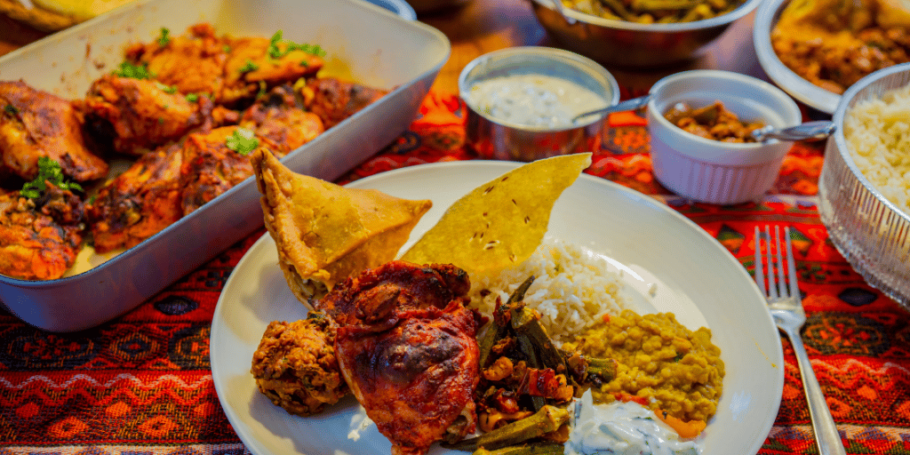At BeeZee Bodies, most of the people we work with take stock of their immediate environment (physical, social, etc.) and identify the changes they need to make in order to set up new defaults that push them towards their new goals, rather than using willpower to force them through.
On a couple of occasions, I have gone through this process with people who, when appraising their personal circumstances, realised that they were unable to change significant elements of their circumstances because of the strength of the culture around them.
A memorable example was a Gutless (our men’s weight management service) participant called Habib.
Habib was a policeman and had gradually put on weight after going from a more active job to a desk-based job. He was an Asian guy who had regular events at home and the homes of his friends and family as they were part of a large family and social network that got together multiple times per week.
Their culture was very much centred around food, as are a lot of cultures, much of which was rich, deep-fried and/or full of sugar, multiple times a week.
We began discussing elements of Habib’s lifestyle that we could seek to change.
- Cooking using healthier methods.
But cooking traditional and tasty food was a big deal in how they wanted to present themselves to others. It was not an option for Habib’s wife to put out food that was not as tasty as their friends and family.
- Speaking to the group about making some changes collectively.
As Habib was finding it difficult to change his wife’s mind, he thought it impossible to change the mind of everyone around them. Plus, he did not want to offend anyone by suggesting they needed to change.
- Making less food on the occasions they hosted.
Cooking less was one of the biggest objections we faced. It was very important to demonstrate to all that you were able to put on a good spread. Culturally, they felt that their spread was an indication of their wealth and status, so putting on a smaller (even if adequate) spread was not an option.
- Just eat less when you are at the events.
With the best will in the world I knew this was unlikely. We can plan to do this, but when you are hungry, the food smells amazing, it is buffet style (no portion control) and everyone around you is doing it; it is very difficult to ‘just eat less’ in that environment.
After long and deep reflection, Habib arrived at the view that he could not change most of these things.
We talked about lots of other elements of his lifestyle that could be modified and did our best to support Habib to make other changes, including incorporating more physical activity into his lifestyle – some of which had a positive impact on his physical and mental health.
Habib still struggles with his weight. The good thing is that he knows the reasons that he struggles.
If nothing else, Habib has ridded himself of guilt surrounding his failed weight-loss attempts through this process.
Whilst it’s never nice to see people you’re working with fail (in not achieving their goal), this story serves as a potent reminder of the role that cultural structures and norms play in successfully changing behaviour.
This is why changing behaviour can be incredibly difficult, but also difficult for practitioners to support unless they begin to fully unpick the elements of the individual’s culture that may have caused failure in the past.
Every day really is a school day when you’re trying to get inside someone else’s head!


